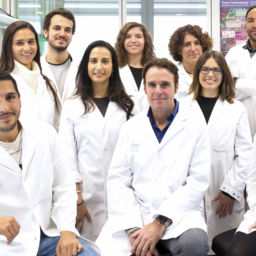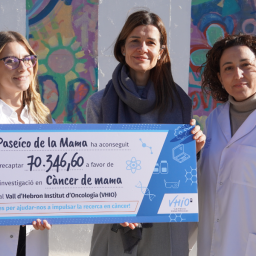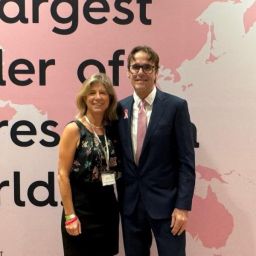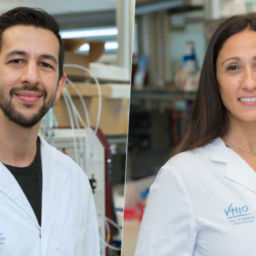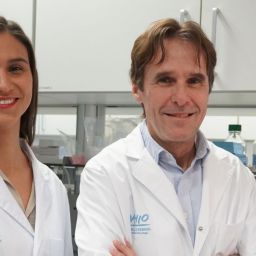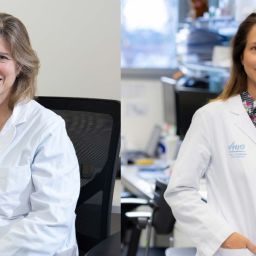
The Breast Cancer Research Foundation (BCRF) will commit $60.2 million to breast cancer research in 2023-2024, supporting more than 250 scientists from leading academic and medical institutions in 14 different countries. The BCRF-funded research projects will cover all aspects of the disease, from the very roots of cancer to how it spreads throughout the body. In its 30th year, the BCRF is now the largest private funder of breast cancer (and metastatic breast cancer) research in the world.
Two projects led by VHIO researchers have been selected in this BCFR call:
Towards a personalised assessment of genetic risk for breast cancer
The project “Feasibility analysis of the implementation of whole-genome sequencing for genetic diagnosis and risk stratification of breast cancer”, led by Dr Judith Balmaña, head of VHIO’s Hereditary Cancer Genetics Group, aims to test innovative approaches for routine genetic counselling in prevention and early detection strategies for people at variable risk of developing breast and ovarian cancer.
“The current clinical approach to assessing the risk of breast and ovarian cancer is based on an assessment of family history and genetic testing for pathogenic variants in genes associated with breast and ovarian cancer,” explained Dr Balmaña.
“However,” she added, “there are additional genetic variants associated with susceptibility to diseases that are not detected by common tests. This wider genetic variation may modify the average risk attributed to carriers of pathogenic variants and may also explain the ‘currently unknown’ genetic susceptibility in people who are not carriers of these variants.”
The project, led by Dr Balmaña, seeks to improve risk assessment by using the CanRisk risk calculation tool to obtain comprehensive cancer risk estimates. She and her team will first test the feasibility of a comprehensive genetic sequencing approach to analyse pathogenic variants in routine clinical practice, then analyse the data for breast and ovarian cancer risk stratification of healthy women, and finally create a bank of unprocessed genetic data that will permit future genomic analyses of genetic cancer risk. The information obtained from this project will produce evidence supporting the feasibility of performing comprehensive genomic cancer risk assessment in the clinic, paving the way for routine clinical implementation of personalised genetic risk assessments.
Cellular ageing as a target for new immunotherapy strategies
The project “Immune senescence against breast cancer” led by Dr Joaquin Arribas, head of VHIO’s Growth Factors Group, seeks to investigate how cellular senescence influences breast cancer progression and explore new strategies that use the immune system to treat breast cancer.
“Research into cellular senescence is rapidly changing our understanding of many diseases, including cancer,” explained Dr Arribas. “Recent recognition that current anti-tumour therapies induce senescence, coupled with evidence that senescent cells significantly influence tumour progression, has shone a light on senescence as a potential therapeutic target.” Thanks to a previous project also funded by the BCRF, Arribas’ lab has generated several experimental models that will help to establish the conditions under which focusing the therapeutic effort on senescence would have a positive effect on the tumour.
“In fact,” he added, “we have already shown that targeting senescent cells generated during anti-tumour therapy through the PD-L2 immune checkpoint results in remarkable and long-lasting responses in an aggressive triple-negative breast cancer model. In this project, we will extend these results by further characterising the PD-L2 checkpoint as a therapeutic target and generating new senescent cell-killing therapies based on chimeric antigen receptors (CARs). We will also develop new senolytic CARs that will expand our current anti-tumour weaponry.”
About the Breast Cancer Research Foundation
The Breast Cancer Research Foundation is a non-profit organisation that is committed to helping prevent and cure breast cancer. We provide critical funding for cancer research projects around the world with a view to driving progress in biology, genetics, prevention, treatment, metastasis and tumour survival.
Since we were founded by Evelyn H. Lauder in 1993, we have raised more than $1 billion dollars to help win the fight against breast cancer. Through a unique and streamlined grant programme, we identify the brightest minds in science and medicine and give them the resources they need to pursue their best ideas. This allows researchers to make discoveries and design new approaches to tackle all aspects of breast cancer, and to do so in record time.



